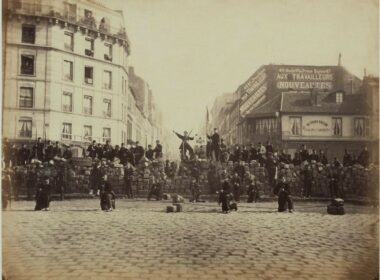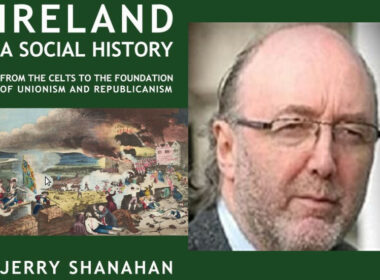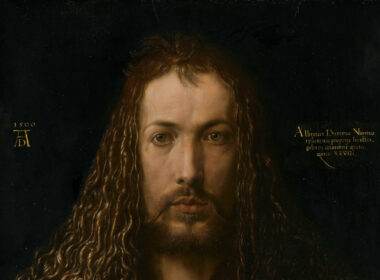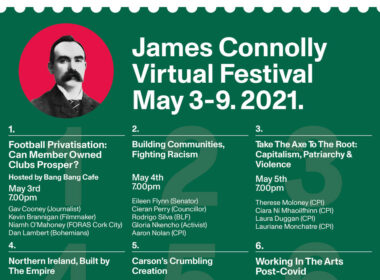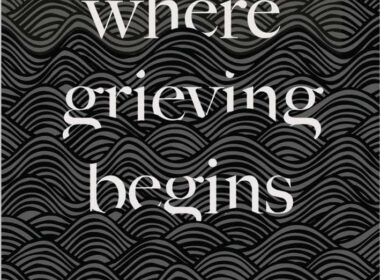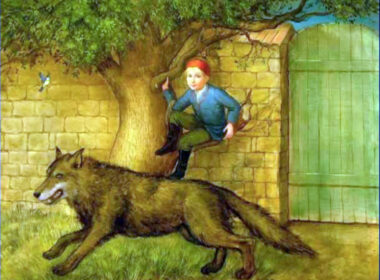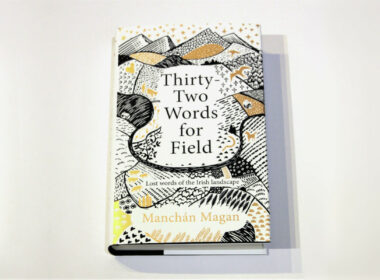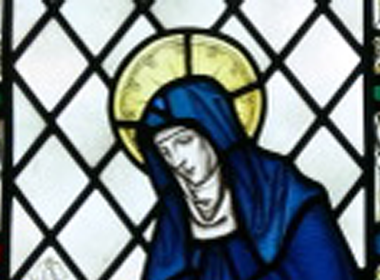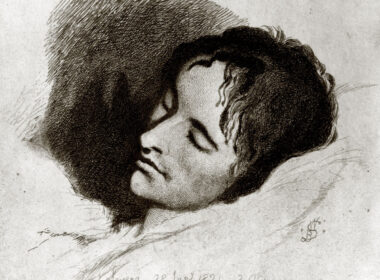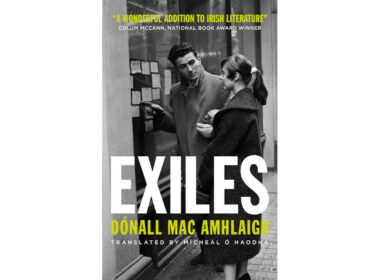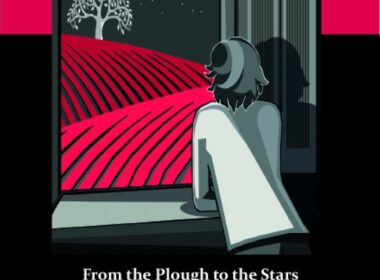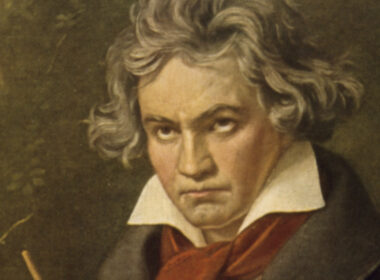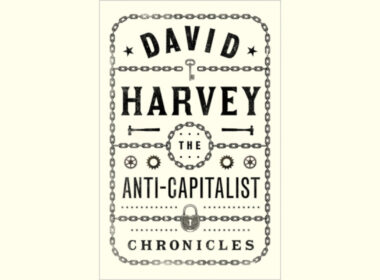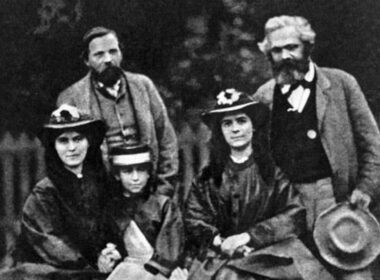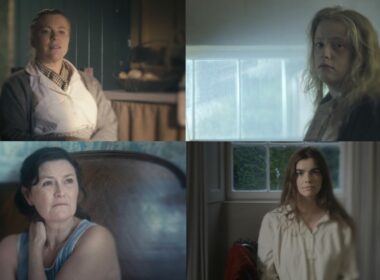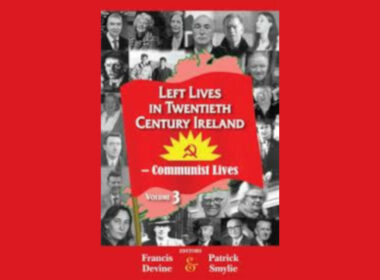As we mark the 150th anniversary of the French proletariat’s heroic first attempt to set up La Commune in Paris, let us examine Bertolt Brecht’s interpretation of this great event in his play The Days of the Commune. The Commune broke out spontaneously on 18 March 1871. War with Germany, hardship, […]
Culture
A broad sweep of the story of the Irish
■ Jerry Shanahan, Ireland: A Social History (Dublin, 2021) Much left-wing literature in the twenty-first century seems to suggest that history began in 1848 or, at the earliest, in 1789. This unmarxist view tends towards a blinkered understanding of the roots of modern society and the development of capitalism and imperialism. Therefore, […]
Albrecht Dürer – Champion of the peasants
Albrecht Dürer was born 550 years ago, on 21 May 1471, during the Renaissance, a time of upheaval that rang in the early modern age. With improved production methods, industry and trade grew rapidly, bringing with them more money and the strengthening of a new middle class. Modern science developed, […]
James Connolly Festival returns
The annual James Connolly Festival returns for its seventh year on 3–9 May, bringing together working-class arts, culture, and politics. This year’s week-long virtual events, recorded at the New Theatre, will include lectures, panel discussions, round-table talks, debate, and performance, covering a wide variety of contemporary and historical topics and […]
A valuable contribution
■ Patrick Magee, Where Grieving Begins: Building Bridges after the Brighton Bomb (London: Pluto Press, 2021) Patrick Magee’s memoir is an insight into both his personal history and what was for decades the harsh experience of life for Northern Ireland’s non-unionist community. Although he will forever be identified with the […]
“Peter and the Wolf” — A work of socialist realism
One of Sergei Prokofiev’s most famous compositions is Peter and the Wolf (1936). Natalya Sats, then director of the Moscow Musical Theatre for Children, had commissioned this work to introduce children to some of the instruments of the orchestra, and to classical music. Prokofiev had met Sats while taking his […]
Irish as spectacle
Manchán Magan, Thirty-Two Words for Field (Dublin: Gill Books, 2020). This acclaimed book ostensibly celebrates the Irish-speaking community in Co. Kerry, where the author spent his holidays as a young man. He explores the rich vocabulary of traditional Irish-speakers and their words for natural phenomena: the weather, the sea, plants, […]
Another phoney celebration
Just as it did with St Patrick’s Day, the state has decided to take over the 1st of February—the beginning of spring, traditionally known as St Brigid’s Day—and convert it into another cheap stunt for promoting tourism and “selling Ireland.” (The only wonder is that there’s anything left to sell.) […]
John Keats: A revolutionary romantic
George Bernard Shaw wrote: “Keats achieved the very curious feat of writing a poem of which it may be said that if Karl Marx can be imagined writing a poem instead of a treatise on Capital, he would have written Isabella.” The 200th anniversary of Keats’s death this month is an opportunity to celebrate this revolutionary romantic.
Exiles – Dónall Mac Amhlaigh
Dónall Mac Amhlaigh Exiles. Translated by Mícheál Ó hAodha (Parthian, 2020) Awareness of working-class literature is only slowly growing in Ireland. This is not because it has not so far existed – far from it. Working-class people have known and cherished their tradition for a long time, as a source […]
From the Plough to the stars
■ From the Plough to the Stars: An Anthology of Working People’s Prose from Contemporary Ireland “The cooks, the cleaners, the porters: Unsung heroes on the frontline,” the Irish Times declared in early May 2020, suddenly recognising that a society cannot function without the working class, for just a brief […]
Beethoven and the Ode to Joy
Like few other composers, Beethoven expresses the will for freedom, the democratic longing of the people. His music is the continuation of the French Revolution through the means of art; his Ninth Symphony is a hymn to the humanist utopia of the equality of all humankind. Beethoven’s Ninth Symphony The […]
Setting our sights low
FOR ANYONE in the Anglophone world with an interest in Marx or political economy, David Harvey is probably a figure who needs no introduction. The British professor, who celebrated his 85th birthday on 31 October, is one of the most prominent theorists and spokespersons of the contemporary Western left, whose studies of Marx’s Capital
Engels and marriage
FRIEDRICH ENGELS, whose 200th birthday falls on 28 November, had a very personal connection with Ireland. Soon after being sent to help run the family textile factory in Manchester in 1842 he met twenty-year-old Mary Burns, daughter of an Irish dyer. Engels’s friend the revolutionary German poet Georg Weerth wrote a poem about Mary after he met the couple.
War on women
“Cogadh ar Mhná” [war on women], a documentary that TG4 broadcast at 9:30 p.m. on 23 September, describes how sexual violence was used against women during the War of Independence and the following Civil War. More heartbreaking are the words of the women themselves, women who often didn’t have the […]
Communist lives
■ Francis Devine and Patrick Smylie (editors), Left Lives in Twentieth-Century Ireland, vol. 3: Communist Lives, Dublin: Umiskin Press, 2020. The Communist Party of Ireland will celebrate a hundred years of Irish communism in 2021. This book is a welcome contribution to the centenary of the party. After the counter-revolutions […]

